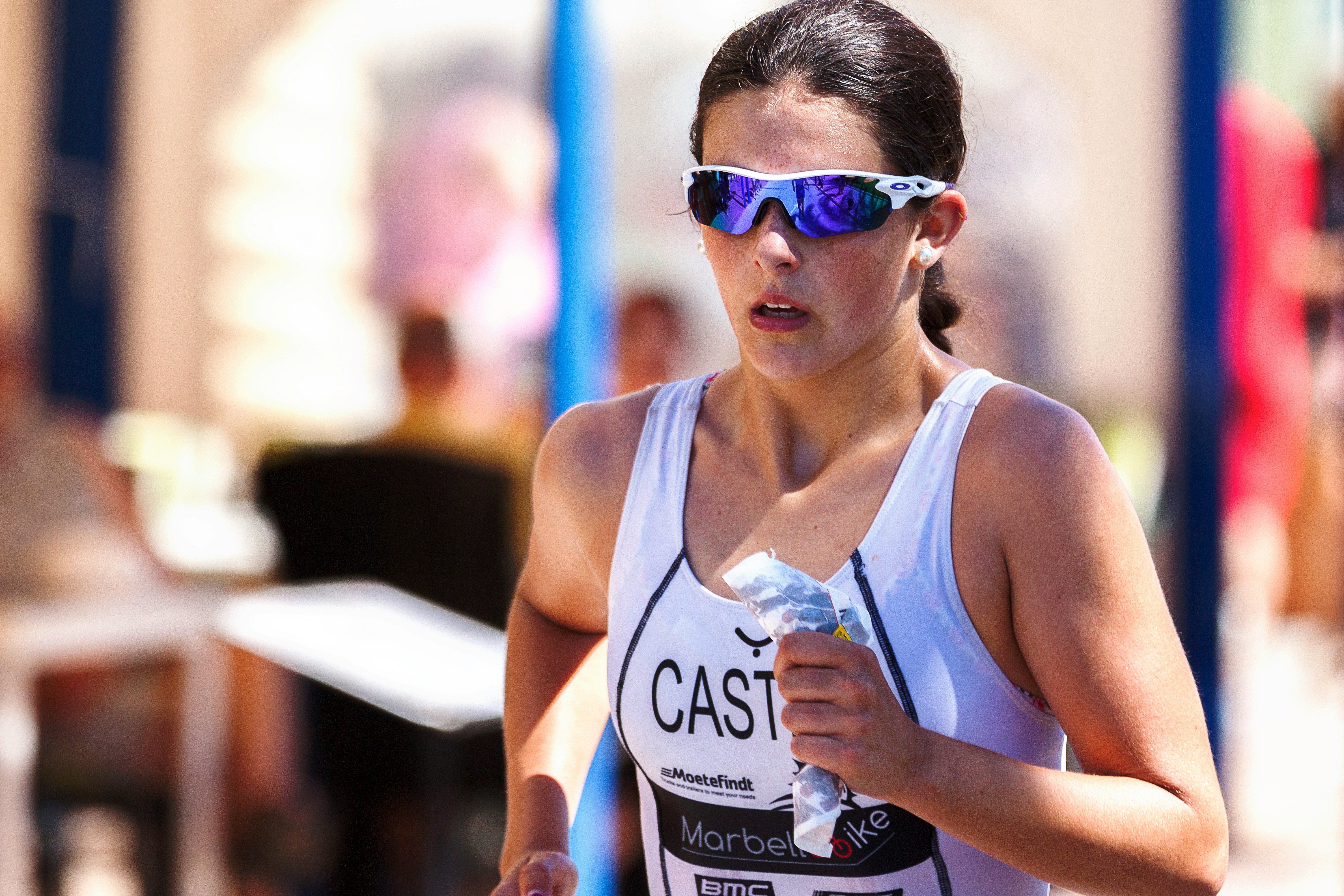How Long to Train for a Half Marathon: A Comprehensive Guide
Sep 27, 2024
Embarking on the journey to run a half marathon is an exciting and challenging endeavor. Whether you're a seasoned runner or a complete beginner, proper training is crucial to ensure you cross that finish line feeling strong and accomplished. But one question often arises: how long does it take to train for a half marathon? In this comprehensive guide, we'll explore the factors that influence training duration and provide you with the information you need to prepare for your 13.1-mile adventure.
Factors Affecting Training Duration
Several factors influence how long you'll need to train for a half marathon:
Current fitness level
Running experience
Time available for training
Personal goals
Any existing injuries or health conditions
Let's dive into how these factors impact your training timeline.
Training Duration for Different Fitness Levels
Beginners: 12-16 Weeks
If you're new to running or haven't been consistently active, you'll likely need 12-16 weeks to prepare for a half marathon. This time frame allows you to gradually build your endurance and reduce the risk of injury. During this period, you'll focus on:
Building a solid running base
Improving cardiovascular fitness
Learning proper running form
Gradually increasing weekly mileage
A beginner's training plan might start with a combination of running and walking, progressing to continuous running as fitness improves.
Intermediate Runners: 10-12 Weeks
If you've been running regularly and have completed a 5K or 10K race, you may be ready for a half marathon in 10-12 weeks. Your training will focus on:
Increasing weekly mileage
Incorporating speed work and hill training
Improving running efficiency
Building mental toughness for longer distances
Advanced Runners: 8-10 Weeks
Experienced runners who have already completed a half marathon or regularly run long distances may only need 8-10 weeks to prepare for their next race. This training period will involve:
Fine-tuning race strategy
Incorporating more intense speed work
Focusing on race-specific pacing
Tapering effectively before the race
Is 2 Months Enough for a Half Marathon?
For most beginners, two months (or 8 weeks) is generally not enough time to safely prepare for a half marathon. However, if you're an intermediate or advanced runner with a solid base of mileage, you might be able to train effectively in this timeframe. It's crucial to listen to your body and not rush the process, as doing so can lead to injury or burnout.
From 5K to Half Marathon: How Long Does It Take?
If you've successfully completed a 5K and are looking to step up to the half marathon distance, you can expect to spend about 10-12 weeks training. This assumes you've been maintaining your fitness since your 5K and are running regularly. Your training will focus on gradually increasing your long runs and overall weekly mileage.
Beginner Half Marathon Pacing
For beginners, the primary goal should be to finish the race comfortably rather than aiming for a specific time. A realistic pace for many first-time half marathoners is between 10-12 minutes per mile, which would result in a finish time between 2:11 and 2:37.
Remember, it's essential to train at a conversational pace for most of your runs. This means you should be able to hold a conversation while running. Incorporate strength training and cross-training activities to improve overall fitness and reduce injury risk.
What Is a Respectable Half Marathon Time?
A "respectable" half marathon time is subjective and varies based on age, gender, and experience level. However, here are some general guidelines:
Beginner: 2:20 to 3:00
Intermediate: 1:45 to 2:15
Advanced: Under 1:45
Remember, any time you complete a half marathon is an achievement worth celebrating!

Is 2 Hours Slow for a Half Marathon?
A 2-hour half marathon equates to roughly 9:09 minutes per mile, which is a solid pace for many recreational runners. While it may not be considered "fast" by elite standards, it's certainly not slow. Many runners aim to break the 2-hour mark as a significant milestone in their running journey.
Can You Run a Half Marathon If You Can Run a 5K?
Yes, you can train for a half marathon if you can comfortably run a 5K. However, you'll need to gradually increase your endurance and weekly mileage. A typical progression might look like this:
Build up to running 5K (3.1 miles) comfortably
Increase long runs to 10K (6.2 miles)
Progress to 15K (9.3 miles)
Reach half marathon distance (13.1 miles)
This progression usually takes 10-12 weeks for someone who's already comfortable with the 5K distance.
The Longest Run Before a Half Marathon
Most training plans cap the longest run at 10-12 miles, typically scheduled 2-3 weeks before race day. This allows your body to adapt to long-distance running without the added stress of completing the full race distance in training. The taper period following your longest run helps ensure you're well-rested for race day.
Is a Half Marathon Hard?
The difficulty of a half marathon depends on your preparation and fitness level. With proper training, most people find it challenging but achievable. Key factors that contribute to the difficulty include:
Mental stamina required for running for 2+ hours
Physical endurance needed to cover 13.1 miles
Potential for weather conditions affecting performance
Maintaining proper nutrition and hydration during the race
Adequate training and race-day preparation can significantly reduce the perceived difficulty of a half marathon.
Average Half Marathon Completion Time
The average half marathon finish time varies widely based on age, gender, and experience level. However, a rough estimate for average finish times are:
Men: 1:55 to 2:00
Women: 2:10 to 2:15
Remember, these are just averages, and your personal time may be faster or slower depending on various factors.
What Zone to Run a Half Marathon?
Most runners aim to complete a half marathon in Zone 3 or Zone 4 of heart rate training zones. This typically corresponds to about 70-85% of your maximum heart rate. However, your exact zone may vary based on your fitness level and race goals.
For beginners, staying in Zone 3 (about 70-80% of max heart rate) for most of the race can help ensure a comfortable finish. More experienced runners might push into Zone 4 (80-90% of max heart rate) for portions of the race to achieve a faster time.
Is 4 Months Enough to Train for a Half Marathon?
Four months (about 16 weeks) is an excellent amount of time to train for a half marathon, especially for beginners. This duration allows for:
Gradual increase in mileage to prevent injury
Incorporation of strength training and cross-training
Adequate recovery time between workouts
Mental preparation for the race
Even experienced runners can benefit from a 16-week training plan, using the extra time to focus on speed work or improving their personal best time.
Key Components of Half Marathon Training
Regardless of your experience level, a well-rounded half marathon training plan should include:
Long Runs: Gradually increasing in distance, peaking 2-3 weeks before the race.
Speed Work: Intervals and tempo runs to improve running efficiency.
Easy Runs: Building aerobic base and promoting recovery.
Cross-Training: Activities like cycling or swimming to improve overall fitness.
Strength Training: Exercises to build muscle, improve running form, and prevent injury.
Rest and Recovery: Essential for allowing your body to adapt to the training stress.
Tips for Successful Half Marathon Training
Start Slowly: Gradually increase your mileage to avoid injury.
Be Consistent: Regular training is key to improvement.
Listen to Your Body: Rest when needed and don't ignore pain.
Fuel Properly: Learn what nutrition works best for you during long runs.
Stay Hydrated: Practice your hydration strategy during training.
Invest in Good Gear: Proper running shoes and comfortable clothing can make a big difference.
Join a Running Group: Training with others can provide motivation and support.
Practice Race Day Logistics: Familiarize yourself with pre-race routines and race day fueling.
Conclusion
Training for a half marathon is a journey that typically takes between 8 to 16 weeks, depending on your starting fitness level and running experience. Beginners should aim for the longer end of this range to safely build endurance and reduce injury risk. Remember, the goal of your first half marathon should be to finish strong and enjoy the experience.
No matter your pace or finish time, completing a half marathon is a significant achievement. With proper training, dedication, and the right mindset, you'll be well-prepared to tackle those 13.1 miles.
Ready to start your half marathon journey? Check out Tidalflow's personalized training plans to help you reach your running goals. Whether you're a beginner or looking to set a new personal record, we have the tools and support to guide you every step of the way. Start your training today and take the first stride towards your half marathon success!
You should not have to do it all on your own













